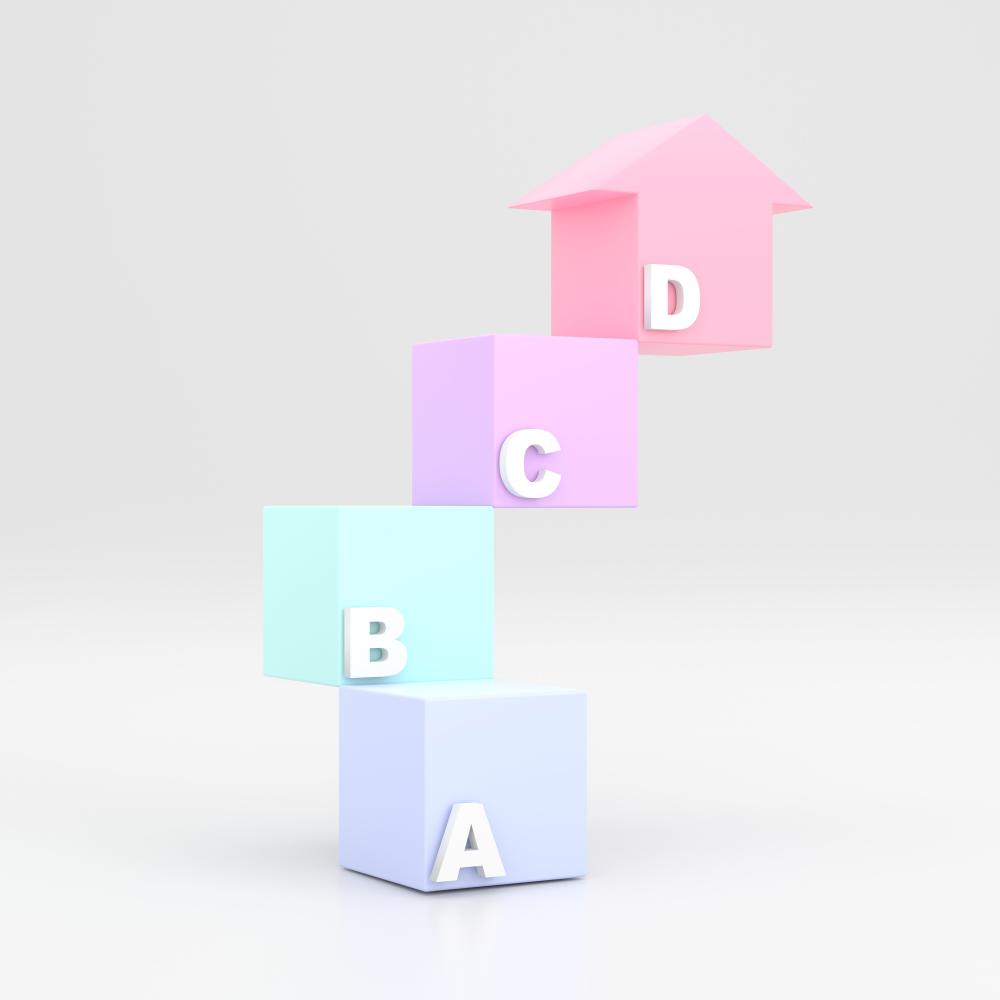What Is Domain Rating (DR)?
Domain Rating (DR) is like the online credibility scorecard of a website, a concept pioneered by Ahrefs. It gauges how influential and trustworthy a site appears, based on the quality and quantity of its backlinks, on a scale of 0 to 100. This metric is pivotal for SEO professionals as it reflects potential ranking power, helping in strategizing link-building and assessment of competitive landscapes.
When evaluating a site's domain rating dr, it's essential to look at it as a relative measure. A DR of 50 might be stellar for a niche blog but modest for a major media outlet. The scale is dynamic, meaning your site's DR can change not only by gaining or losing backlinks but also as other sites evolve within this system.
At Domain Rating IT, we specialize in demystifying DR, providing tools and resources to leverage this metric for your online growth. Whether you're a blogger or a seasoned SEO expert, comprehending DR can steer your digital endeavors in the right direction.
Improving Your Domain Rating (DR)
Increasing your domain rating dr involves a thoughtful approach to acquiring high-quality backlinks. Here's a concise roadmap:
- Conduct a Backlink Audit: Identify and eliminate toxic links that can harm your DR.
- Engage in Guest Blogging: Write for reputable sites in your niche to earn valuable backlinks.
- Leverage Content Marketing: Create engaging, shareable content that naturally attracts links.
- Network with Industry Peers: Forge relationships with fellow webmasters for potential backlink opportunities.
By consistently applying these strategies, you can gradually see an improvement in your domain rating dr. It's not an overnight transformation but a long-term investment into your website's authority and search engine visibility.
Why Is Domain Rating (DR) Important for SEO?
Domain rating dr is a critical metric for SEO success as it provides insights into a site's likelihood to rank well. Higher DR sites tend to rank better, although there's no direct correlation guaranteed. DR is a significant part of assessing any website's overall authority and is often used alongside other metrics like page authority and organic traffic.
Using Domain Rating IT's tools, you can monitor these metrics effectively, helping refine your SEO strategies for enhanced performance in search engine rankings. Our platform assists in understanding how your site stands competitively in its market and how you can capitalize on available link-building opportunities.
Common Misunderstandings about Domain Rating (DR)
There are several misconceptions about domain rating dr that can lead to strategic missteps.
- Many believe a high DR automatically translates to high rankings, which isn't necessarily true. It's just one piece of the SEO puzzle.
- Some think DR is static, but it's a fluid measure, constantly shifting with the web's dynamic nature.
- Another misconception is that DR is the sole measure of site quality, ignoring factors like content relevance and user experience.
Recognizing these misunderstandings can prevent frustration and help focus efforts on holistic SEO strategies that drive real results.
How Can I Check My Domain Rating (DR)?
Checking your domain rating dr is straightforward with Domain Rating IT. Without even logging in, you can instantly access your DR score using our free tool. This empowers you with immediate insights to evaluate your online standing and make informed decisions to enhance your digital footprint.
Further, our platform allows you to compare your DR against competitors, track historical changes, and identify strategic link-building opportunities. With just a few clicks, you can unlock potential pathways to bolster your site's authority and search engine prominence.
What is Domain Rating?
Domain Rating de Ahrefs is a key metric used to evaluate the strength and "authority" of a website's backlink profile. This metric, known as Domain Rating (DR), operates on a scale from 0 to 100. A higher score typically indicates a more authoritative website. Developed by Ahrefs, DR focuses on the quantity and quality of referring domains rather than other factors like traffic or age.
As an SEO expert with over 20 years of experience, I've found that utilizing Domain Rating de Ahrefs provides invaluable insights into a website's potential to rank well in search engine results. By focusing primarily on the strength of backlinks, DR offers a clear picture of how well a site might perform in terms of organic search visibility.
Why is Domain Rating Important?
Understanding Domain Rating de Ahrefs is crucial for anyone involved in SEO. The DR metric allows professionals to assess the effectiveness of their link-building strategies and compare their site's performance against competitors. In my experience, a solid Domain Rating is a strong indicator of online success.
When I analyze a website's DR, I focus on benchmarking it against industry standards and competitors. This helps identify areas for improvement and opportunities for growth. Additionally, by regularly checking the Domain Rating de Ahrefs, I can track changes over time and adjust strategies accordingly.
It's important to remember that while a high DR can correlate with better search engine rankings, it shouldn't be the sole focus. A holistic SEO strategy is essential for sustainable growth in online visibility.
How to Improve Your Domain Rating
Boosting your Domain Rating de Ahrefs involves strategic link-building practices. Here's a simple process I've developed over the years:
- Identify high-authority websites in your industry and aim to earn backlinks from them.
- Focus on quality over quantity: a few high-quality links can be more effective than numerous lower-quality ones.
- Regularly audit your backlink profile to identify and disavow toxic links that might harm your DR.
- Engage in content marketing strategies that encourage natural linking, such as guest blogging and creating shareable content.
By following these steps, you'll likely see an improvement in your Domain Rating de Ahrefs, which could lead to better search engine rankings over time.
How Does Domain Rating Differ from Other Metrics?
Domain Rating de Ahrefs is often compared to Moz's Domain Authority (DA). While both metrics aim to assess a site's backlink strength, they differ in their methodologies. DR focuses on the quality and quantity of referring domains, while DA incorporates various factors, including search engine performance and link diversity.
- Referring Domains: DR prioritizes the strength of referring domains.
- Backlink Quality: Both DR and DA consider the quality of backlinks, but DR places more emphasis on domain-level metrics.
- Metric Application: DR is often used to assess competitive landscapes in search engine optimization, while DA provides a broader insight into a website's authority.
In my role at Domain Rating IT, I've consistently seen how understanding these differences can help businesses make informed decisions about their SEO strategies.
What Questions Do People Ask About Domain Rating de Ahrefs?
One frequently asked question is: "What qualifies as a good Domain Rating de Ahrefs?" Generally, a good DR score is relative to your competition. A DR of 30 might be excellent in a niche industry, while a DR of 60 could be necessary in a highly competitive field. As a professional, I encourage clients to focus on outperforming direct competitors rather than achieving a specific DR number.
Another common query is about the speed of DR changes. It's normal for Domain Rating de Ahrefs to fluctuate as new links are gained or lost. Regular monitoring helps capture these shifts, allowing for timely strategy adjustments.
Ultimately, by addressing these questions and staying informed through Domain Rating IT, users can better navigate the intricacies of DR and enhance their website's online authority.
The Importance of Domain Rating
In the competitive world of SEO, knowing where your website stands is crucial. The domain rating definition is a key factor that helps measure the strength of your site's backlink profile. Developed by Ahrefs, this metric ranks websites on a 0 to 100 scale. Higher scores imply better authority and a stronger potential for high search engine rankings.
As an SEO professional with over two decades of experience, I often emphasize that a good domain rating can significantly enhance your online visibility. It's not just about the number of backlinks but the quality and authority of referring domains that count. Websites with higher domain ratings are typically seen as more credible and attract more organic traffic.
What Contributes to Domain Rating?
Domain rating is intricately linked to the quality and quantity of backlinks. But how exactly is it calculated? Ahrefs considers several factors:
- The number of unique websites linking back to your domain.
- The domain ratings of those referring sites--higher is better.
- The number of domains that each site, in turn, links to--a lower out-link count can increase the influence a high-DR site has on yours.
These elements collectively contribute to your overall domain rating definition, making it essential to foster relationships with reputable sites that can provide quality backlinks.
Improving Your Domain Rating
Elevating your domain rating is a strategic process. Here's a step-by-step guide to help you increase your site's authority:
- Identify high-quality sites within your niche and aim for backlink opportunities from them.
- Create exceptional content that naturally attracts backlinks due to its value and relevance.
- Engage with influencers and thought leaders who can reference your content on authoritative platforms.
- Regularly audit your backlink profile to remove links from spammy or low-quality sites.
Each of these steps can play a pivotal role in enhancing your domain rating definition, leading to better search engine rankings over time.
Is Domain Rating Information Publicly Available?
The domain rating definition is not only for SEO experts but can also be accessed by anyone interested in understanding a site's authority. Tools like Domain Rating IT offer a free and efficient way to check your own site's rating. This comprehensive information aids in devising effective link-building strategies.
By leveraging these insights, digital marketers, bloggers, and business owners can make informed decisions about their online strategies and effectively track their SEO progress.
Why Does Domain Rating Fluctuate?
Many often wonder why their domain rating changes even without apparent loss of backlinks. The domain rating definition accounts for relative positioning among all sites. As some domains improve their backlink profiles, others might see a shift in their DR rankings.
Think of it as a continuous race where the input of new competitors can affect existing standings, necessitating ongoing efforts to maintain or enhance your position.
What is the significance of Domain Rating and how does it affect SEO strategy?
Domain Rating is a metric that reflects the strength of a website's backlink profile and is pivotal for assessing its authority in SEO. A higher Domain Rating suggests a site is more authoritative, which can lead to better rankings in search engine results. From personal experience, a comprehensive understanding of this metric allows SEO professionals to formulate effective link-building strategies. For instance, when I first started optimizing a niche website, monitoring the DR helped me prioritize high-quality backlinks, which led to increased organic traffic. It's about understanding the competitive landscape and identifying opportunities that align with your site's strengths. Have you considered how your current backlink profile might be influencing your SEO results?
How can one improve their Domain Rating effectively?
Improving your Domain Rating is about quality over quantity. Start by conducting a backlink audit to remove any toxic links, and focus on building relationships with reputable sites in your niche. Guest blogging and creating high-value content that naturally attracts links are crucial steps. For example, I once collaborated with an industry influencer, and their endorsement led to several authoritative sites linking back to my content, significantly boosting my DR. It's a gradual process, but each high-quality backlink acts like a vote of confidence for your site in the digital realm. What steps have you taken to ensure the quality of your backlinks?
Why does Domain Rating fluctuate, and how should one respond to these changes?
Domain Rating can fluctuate because it's a relative measure among all websites. As some sites improve their backlink profiles, your DR might change even if you haven't lost any links. I remember when my site's DR shifted after a competitor launched a successful link-building campaign. Instead of panicking, I focused on strengthening my own backlink strategy by engaging with new potential partners. It's important to remain adaptive and continually seek quality link opportunities. Have you noticed any fluctuations in your site's DR, and how did you address them?
How does Domain Rating differ from Domain Authority, and why should you care?
Domain Rating and Domain Authority are both metrics that assess a site's backlink profile strength, but they differ in their approaches. Domain Rating focuses on the quantity and quality of referring domains, while Domain Authority also considers factors like link diversity and search performance. In my professional journey, I've found that understanding both metrics provides a well-rounded view of a site's SEO potential. It's vital to know which metric aligns more with your strategic goals. Are you leveraging both metrics to inform your SEO strategy effectively?
What steps can be taken to check and analyze your Domain Rating?
Checking your Domain Rating is a straightforward process with tools like our free checker at Domain Rating IT. It provides instant insights into your site's authority without requiring login credentials. Personally, I use it to benchmark against competitors and track historical changes. This data helps in making informed decisions to enhance SEO strategies. It's akin to having a health checkup for your website's authority. Have you recently assessed your Domain Rating and compared it to industry benchmarks?
Why is it crucial to understand misunderstandings about Domain Rating?
Misunderstandings about Domain Rating can lead to strategic errors, such as believing a high DR automatically means higher search rankings. I once encountered a client who was puzzled by their site's low rankings despite a relatively high DR. Upon investigation, it became clear they were neglecting other critical factors like content quality and user experience. Recognizing these misconceptions allows you to focus on a holistic SEO approach rather than relying solely on DR. Have you examined other metrics alongside Domain Rating to ensure a balanced SEO strategy?
What contributes to the calculation of Domain Rating?
Domain Rating is primarily calculated based on the quality and quantity of referring domains. Ahrefs considers the number of unique domains linking to your site and the DR of those referring sites. For instance, I found that acquiring a backlink from a high-DR site significantly impacted my DR, more so than multiple lower-quality links. It's essential to target reputable sites for backlinks. Have you analyzed the types of sites linking back to your content and their impact on your Domain Rating?


